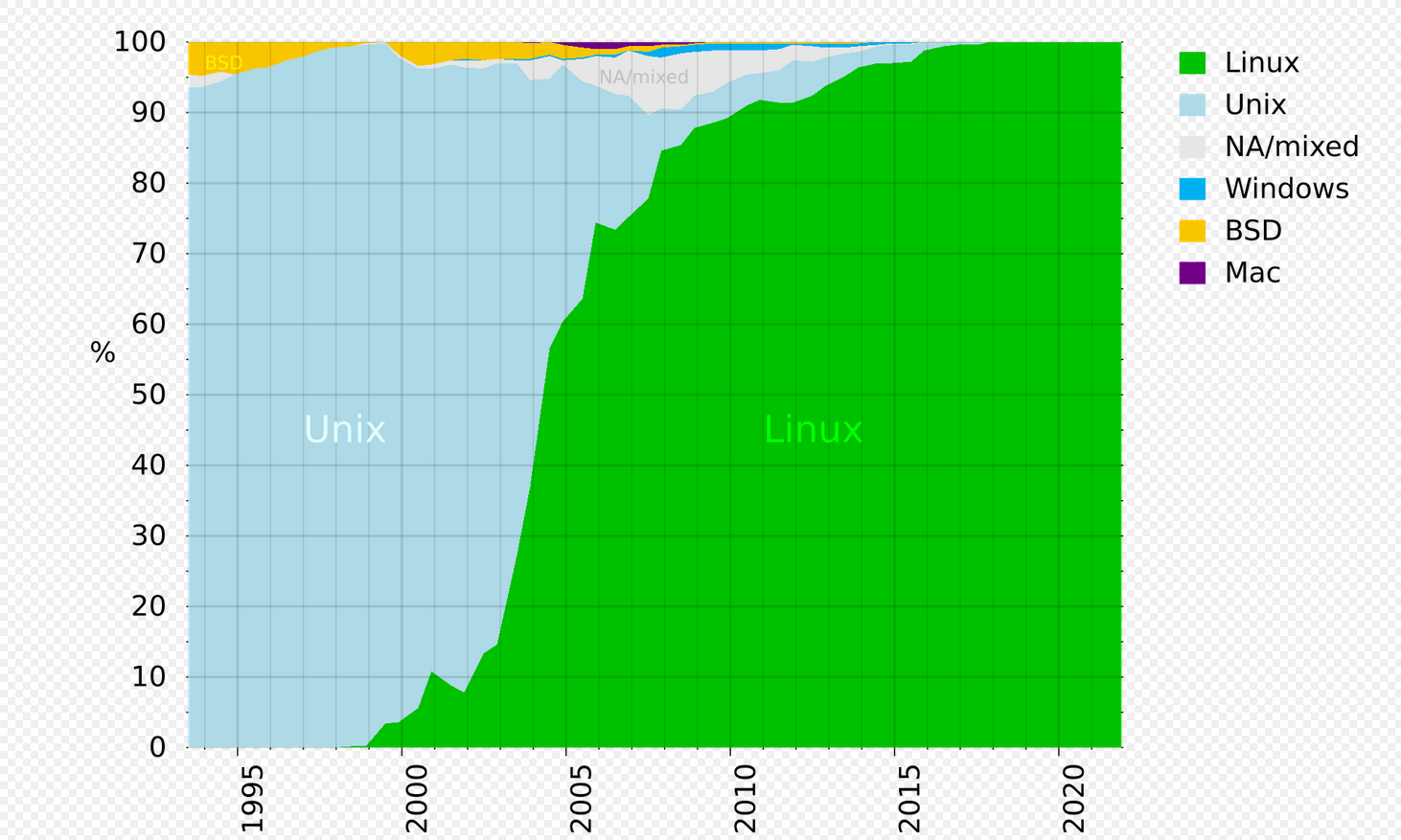this post was submitted on 15 Nov 2024
827 points (99.3% liked)
Linux
60858 readers
552 users here now
From Wikipedia, the free encyclopedia
Linux is a family of open source Unix-like operating systems based on the Linux kernel, an operating system kernel first released on September 17, 1991 by Linus Torvalds. Linux is typically packaged in a Linux distribution (or distro for short).
Distributions include the Linux kernel and supporting system software and libraries, many of which are provided by the GNU Project. Many Linux distributions use the word "Linux" in their name, but the Free Software Foundation uses the name GNU/Linux to emphasize the importance of GNU software, causing some controversy.
Rules
- Posts must be relevant to operating systems running the Linux kernel. GNU/Linux or otherwise.
- No misinformation
- No NSFW content
- No hate speech, bigotry, etc
Related Communities
Community icon by Alpár-Etele Méder, licensed under CC BY 3.0
founded 6 years ago
MODERATORS
you are viewing a single comment's thread
view the rest of the comments
view the rest of the comments

Copy Boot Files to EFI Copy the boot files to complete the EFI partition to boot into our windows.
bcdboot c:\Windows /s G: /f ALL
Source: https://christitus.com/install-windows-the-arch-linux-way/
Fijn article, thanks for sharing!
Still, I don't get why'd you do that, all my windows installation automatically put boot files onto C: and did not allow me to touch them afterwards.
G: also seems completely arbitrary, and I'm the majority of windowa setups wouldn't exist or be an external drive.
Simple as.
The boot directory on your file system is where the system gets it from to put on G. It’s left there for recovery/repair
But you still have a G partition for the boot. It lets the computer itself have an easier time finding it (think labeled as boot). Your ssd is divided, it’s not a 2nd physical disk
The letter is arbitrary, so is C. It’s just the default